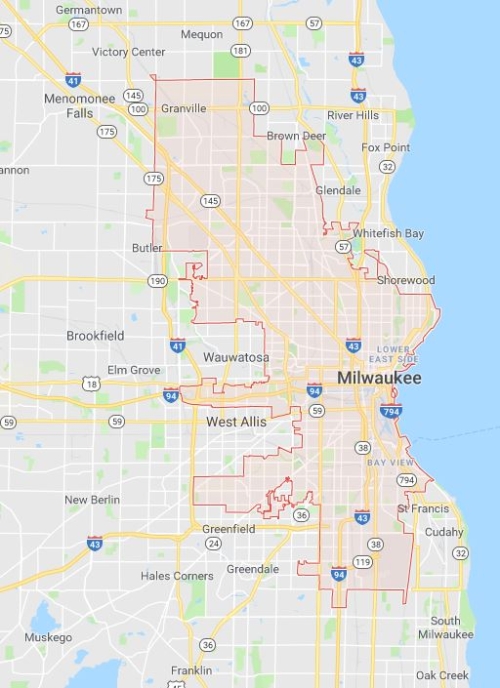Project Safe Neighborhoods

PROJECT SAFE NEIGHBORHOODS (PSN)
U.S. Department of Justice, U.S. Attorney’s Office
Eastern District of Wisconsin Strategic Plan

Project Safe Neighborhoods (PSN) is the U.S. Department of Justice’s initiative to foster partnerships between federal, local, and community agencies to reduce violent gun crime. In the Eastern District of Wisconsin, the PSN target area is the City of Milwaukee
PSN Strategy for the Eastern District of Wisconsin
To address violent gun crimes in Milwaukee, the PSN effort will pursue a Community Prosecution strategy designed to (1) prosecute the most violent offenders and groups and increase overall state and federal prosecutions of firearms offenses; (2) promote community revitalization; and (3) reduce gun crime recidivism.
A. Gun Violence Prosecution
The prosecution strategy aims to prosecute the most dangerous groups and individuals who account for a disproportionate share of gun violence. The strategy includes use of data-driven approaches to identify such offenders and taskforces of local, state, and federal law enforcement agents to leverage resources and enhance information sharing. Special attention will be given to areas with the highest crime rates.
Another aspect of the PSN prosecution strategy is to target the source of guns used in violent crimes. Using intelligence from ATF and other PSN partner agencies, prosecutors will focus on unauthorized firearms dealers and straw purchasers of firearms. In addition, federal and state prosecutors, including Community Prosecutors, will communicate regularly to determine the best venue to prosecute individuals who possess firearms illegally (e.g., individuals with felony or domestic violence convictions).
B. Place-Based Interventions, Collective Efficacy, and Neighborhood Revitalization
Effective place-based policies can influence how neighborhoods develop and function as places to live and operate a business. Place-based cross-sector partnerships connect residents working to improve their neighborhoods with crime reduction programs. Safety initiatives such as the Community Justice Council and the Violence Reduction Public/Health Safety Team (VR-PHAST) will complement the PSN community-improvement efforts and should lead to overall increases in neighborhood collective efficacy.
In connection with the focus on prosecution of violent offenders, police district-based community prosecution teams will work with community organizations to restore properties to their highest quality, assist residents and business owners in creating and enforcing positive neighborhood norms, address nuisances including problem properties, and create a neighborhood crime-reduction plan focused on prevention of gun violence.
C. Gun Violence Deterrence
The PSN-focused deterrence project, modeled after successful PSN notification strategies, will consist of regular face-to-face call-ins of individuals aged sixteen to twenty-six who recently were released from local, state, or federal correctional institutions into Milwaukee.
Deterrence theory argues that crime can be prevented when potential offenders perceive the risk of apprehension and the seriousness and swiftness of sanctions to be greater than any benefits accrued from committing a crime. Focused deterrence theory operates by delivering a message about the promise of swift apprehension and punishment to the chronic, serious, violent offenders along with a message of opportunity to the offenders to receive support in employment, substance abuse assistance, and mental health treatment. Focused deterrence theory is rooted in problem-oriented policing, a highly focused law-enforcement approach that aims to assess, identify, and disrupt the underlying causes of chronic crime problems.
Notification sessions will deliver a fair and clear warning and commitment to each offender of the likely prison sentence from state and federal courts, if the offender is again caught with a firearm or involved in a firearm involved offense. Notification sessions will be organized and facilitated by community-based agencies that provide trauma-informed and healing-focused care to men involved in the criminal justice system. In addition, community agencies will seek to provide critical assistance and support to the returning offenders; connect returning offenders with community resources and services; and help to hold the returning offenders accountable for their actions.
The PSN Coordinator for EDWI is AUSA Christopher J. Ladwig. He can be reached at 414-297-1700.
Project Safe Neighborhoods: Working Together to Keep Communities Safe
PSN Partners:
Milwaukee County District Attorney's Office
Wisconsin Department of Justice
Wisconsin Department of Corrections
Bureau of Alcohol, Tobacco, Firearms and Explosives (ATF)
Federal Bureau of Investigation (FBI)
Homeland Security Investigations (HSI)
Eastern District of Wisconsin Press Releases

 U.S. Department
of Justice
U.S. Department
of Justice